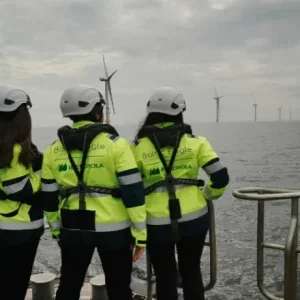The utilities seeking ratepayer recovery for matching funding of smart grid investments, and the amounts of such funding approved by the commission include: Consolidated Edison of New York, Inc. (Con Edison) for $175 million; National Grid $145 million; Rochester Gas and Electric Corporation $36 million; New York State Electric and Gas Corporation $20 million; Central Hudson Gas and Electric Corporation $10 million; and Orange and Rockland Utilities, Inc. $5 million.
“These projects represent an opportunity to move New York’s electricity system into the 21st century,” said commission Chairman Garry Brown. “The introduction of computer technology designed specifically for the electric grid will spark a revolution in the way we use electricity, much like the revolution that occurred in telecommunications and the Internet. With federal cost-sharing being offered, now is the perfect time to move forward because it will minimize the financial impact on ratepayers. In addition, we anticipate a greater likelihood of success in winning the federal grant if the utility has already secured non-federal funding sources for projects.”
Since the federal stimulus funds available from the DOE will only cover up to 50% of the total costs of the proposed smart grid projects, the utilities filed requests with the commission to recover the portion of the costs not covered by the DOE grant from ratepayers.
The ratepayer-matching funding will be provided through a temporary surcharge to be implemented upon completion of each project. Surcharge proposals by the affected utilities will be made after the DOE grants are announced and will be subject to comment by interested parties as to the manner and classes of ratepayers impacted by the surcharge. The impacts of the surcharge are expected to be moderate once implemented.
In approving proposed utility projects for ratepayer-matching funding, the commission determined that projects provide a reasonable investment in technology that improves the efficient and intelligent operation of the electric grid in New York State. The commission concluded that there are substantial benefits to be gained by beginning to invest in the use of advanced technology and communication to improve grid operations.
Projects that expand or extend existing projects that the commission previously authorized for ratepayer recovery were approved for additional ratepayer matching funding, contingent upon DOE approving substantially the same projects in Con Edison’s service territory.
Also, smart grid projects that enhance power operator decision making to avoid events similar to the 2003 Northeast Blackout and 2006 Long Island City Outages were approved on July 24, 2009, as well as projects designed to modernize and enhance existing electrical distribution systems for reliability.
Smart grid projects that will improve grid operations and potentially enable expansion of demand response resources and opportunities for residential customers to manage energy costs were approved in all of the electric service territories.
A smart grid uses advanced/enhanced technology and two-way communications to improve operations and efficiency of the entire electric grid from the generation source to end use consumption. Among other benefits, a smart grid will allow operators to more effectively operate the power grid, and will potentially enable consumers to monitor energy consumption and control their bills. A smart grid can also enable the accommodation of all generation sources, including renewables, and storage options.
Several non-smart grid projects for Con Edison were also approved totaling about $2.5 million in ratepayer funds. Ratepayer contribution to these projects represents less than 50% of the projects costs because the utilities recruited partners for the projects. The projects include deployment of 2,250 solar panels at its Astoria complex to test the company’s system for the integration of solar resources and battery storage; a study conducted with other partners to assess off-shore wind resources; and a partnership with Chrysler and the U.S. Postal Service to test new technologies for vehicle transportation that ultimately may promote the reduction of greenhouse gases.
Approval of all the smart grid projects by the commission is conditioned upon the utilities filing with the commission their applications, and any amendments, submitted to DOE for any competitive grant opportunity in order to ensure the utility has applied to the commission for the same projects filed with the commission for cost recovery.
The utilities are also required to submit quarterly reports detailing the project milestone, including which milestones have been reached, the associated costs for each project milestone along with supportive documentation of the associated costs.






